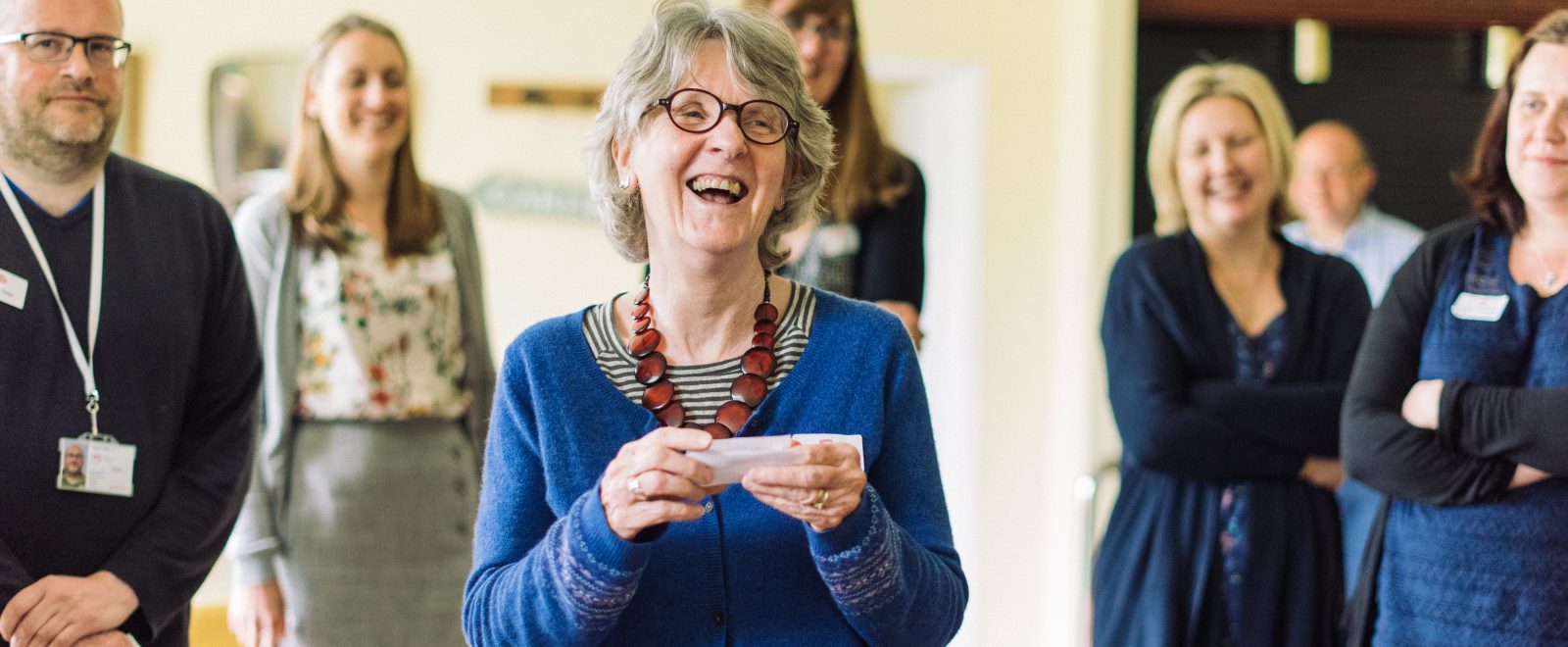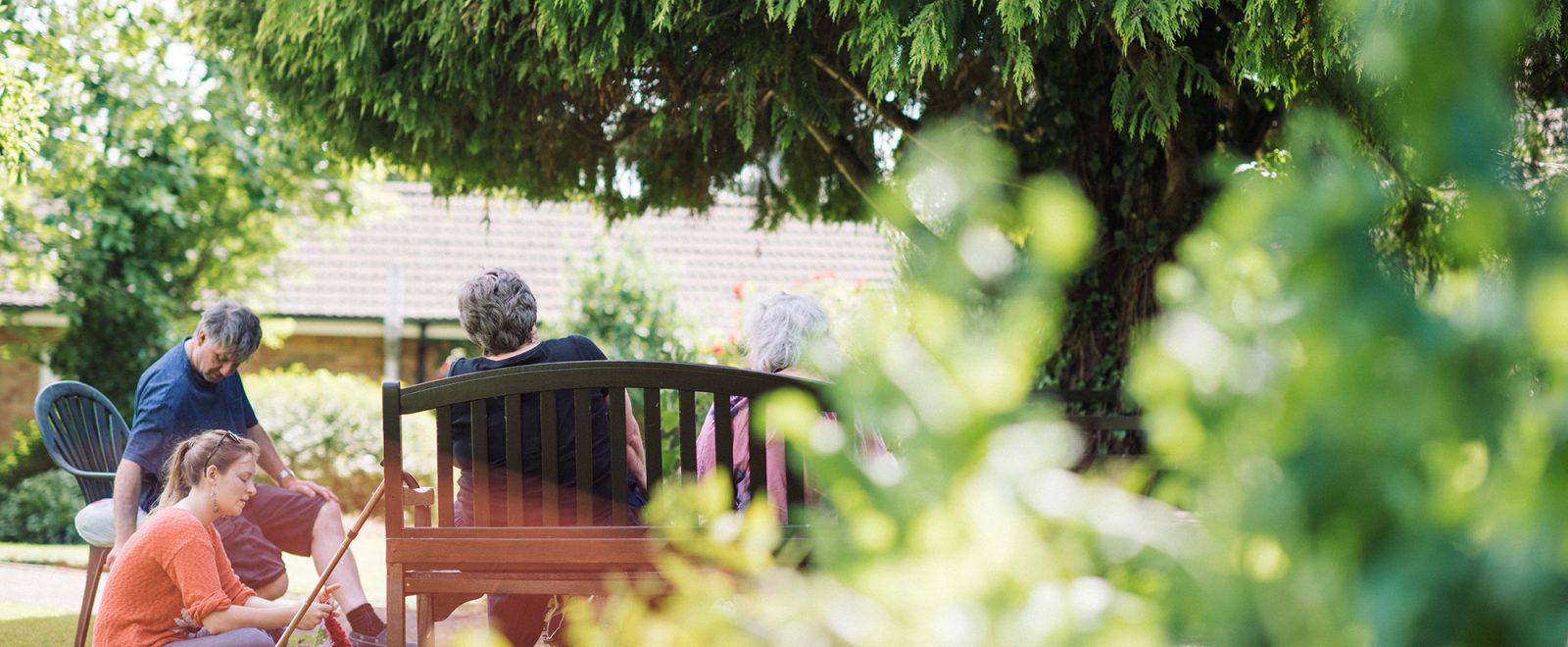
Four pillars of community research
Earlier this year, the research team at Barnwood were lucky enough to go on a writing retreat to Hawkwood College. The aim of the retreat was to think about important methodological and ethical issues that were emerging in our work. We wanted to write these down, distil our experiences, so we could share them more widely.
We are aware that we are very fortunate at Barnwood to have the opportunity not only to do well-funded, longitudinal research but also to have the opportunity to reflect, capture and share our own experiences as researchers.
We had been collecting challenges, queries or interesting experiences in a folder named ‘Reflections and Issues – Methodology’. This is where we started. We grouped all the themes that emerged from the issues we had captured and, after much head scratching, we decided that they fell into four broad categories (or pillars!): complexity, integrity, relationships and inclusion.

These categories, once uncovered, made complete sense to us. One of our most frequent cries is “It’s complicated!”; we constantly have to consider ethical issues of ‘doing the right thing’; we work hard to build relationships; and we make sure that we work as inclusively as possible.
So, having uncovered our categories, we took a theme each and started writing. This was a remarkable experience. We all wrote in the same room, making good use of the frequent meals and tea breaks that were provided and working late into the evening. Our enthusiasm and excitement was palpable as the document took shape and it was great to be able to check things out with each other as we wrote, looking out onto beautiful countryside.

Firstly, we have tried to develop a research programme which can accommodate the complexity of carrying out ‘insider’ research. In trying to achieve clarity of purpose, we have had to go through many stages – can the work respond to organisational changes and working with other organisations, as well as holding that complexity for interpretation and dissemination?
By being aware of the complexity, we have learnt to manage and work with it, seeing it as an inevitable aspect of this type of research.
Integrity is an essential basis for any research programme, but perhaps especially so when working with disabled people and people with mental health problems who are often seen as having less power in the research relationship.
This can, of course, be contested as many people will not consider themselves to be less powerful and we ourselves may not identify as being powerful, but it is evident that researchers are broadly seen as professionals, people who hold knowledge. The aim of the research programme has been to acknowledge these power balances.
We aim to minimise them by behaving with integrity in all aspects of the research process – maintaining confidentiality, being accurate, flexible and consistent, as well as being mindful of safeguarding and ethical issues around the collection of data.
Relationships are at the heart of any research that is based in the community.
We are reliant on our ability to maintain and sustain relationships with our participants, both within Barnwood and externally. Being internal researchers has brought with it both advantages and ethical challenges. We have needed to build trusting relationships and acknowledge that people may have different motivations for taking part.
We try to dispel distrust by reassuring participants that they are not being audited, judged or ‘used’ as gatekeepers. We try to be clear about our purpose. Without building rapport with hundreds of research participants, we would have had a much poorer research programme.
We could have focussed on statistical aspects of the work alone, but the richness of data that we have gathered by talking and relating to people in the community – we consider this to be a treasure trove.
And finally, without having the mind-set of inclusivity, the treasure could not have been discovered. We have put considerable time and thought into the process, considering examples of how this looks in practice. It can be argued that no-one fully consents to research, as much of the process is hidden and emergent, but we have attempted to provide people with as much information as possible, in appropriate formats.
To be inclusive, the research team have needed to be adaptable. We have needed to accept that to include as many people as possible, sometimes the data gathered might not be as detailed or ‘deep’ as it could be, for example when gathering data from someone with a communication impairment.
By keeping the focus on inclusion and the passions of the participants rather than their impairments, the data becomes rich because their experiences are there and we inevitably learn a great deal about people’s day-to-day lives.

So, complexity, integrity, relationships and inclusion are the four pillars that underpin everything that the research team does and we are very grateful that we have had a chance to discover them together.
In the future, we hope to reflect further on the process of our research. As well as our treasure trove of data, we feel there is important learning to be uncovered. This is not only relevant to fellow researchers, we would like to be transparent to our colleagues and to everybody who takes part in the research with us – it can be a somewhat mysterious process.
The foundations of data collection are obviously vital, but we believe our four pillars hold up the structure of our research for closer inspection!